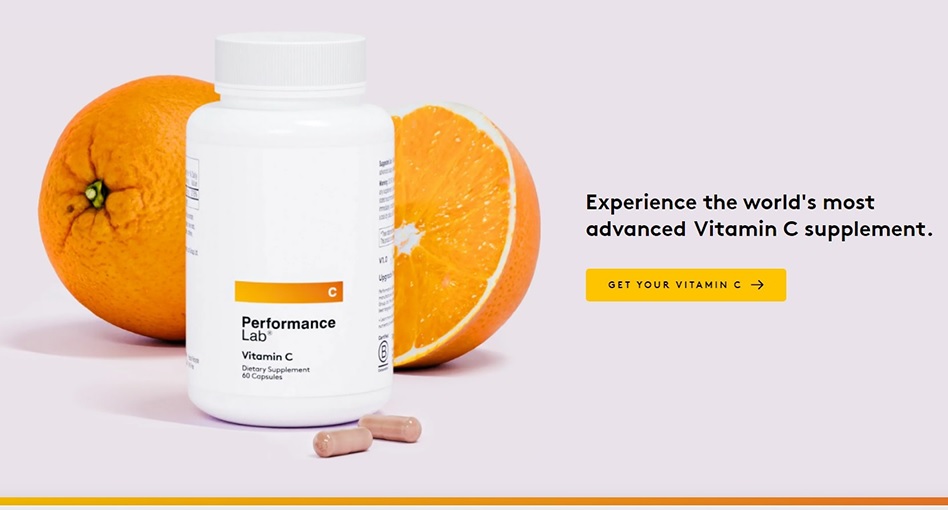
In the quest for optimal health, antioxidants play a crucial role in defending our bodies against cellular damage. Among these, vitamin C stands out as a potent ally, renowned for its ability to neutralize harmful free radicals and bolster our body’s natural defenses.
Contents
- Understanding Oxidative Stress and Free Radicals
- Vitamin C: The Antioxidant Defender
- Supporting Immune Function
- Collagen Synthesis and Skin Protection
- How Vitamin C Protects Brain Health and Cognitive Function
- The Link Between Vitamin C and Exercise Performance
- Reducing the Risk of Chronic Diseases
- Enhancing Iron Absorption
- Incorporating Vitamin C into Your Diet
Understanding Oxidative Stress and Free Radicals
Our bodies are constantly exposed to free radicals—unstable molecules that can damage cells, proteins, and DNA. These free radicals are generated through various processes, including normal metabolic activities and external factors like pollution, UV radiation, and smoking. When the production of free radicals exceeds the body’s ability to neutralize them, it leads to oxidative stress, which has been linked to numerous health issues, including aging, cardiovascular diseases, and certain cancers.
Vitamin C: The Antioxidant Defender
Vitamin C, also known as ascorbic acid, is a water-soluble vitamin that serves as a powerful antioxidant. It donates electrons to neutralize free radicals, thereby preventing them from causing cellular damage. This action helps maintain the integrity of cells and tissues throughout the body.
Regeneration of Other Antioxidants
Beyond its direct antioxidant effects, vitamin C plays a pivotal role in regenerating other antioxidants, such as vitamin E. After vitamin E neutralizes free radicals, it becomes oxidized. Vitamin C helps regenerate vitamin E to its active form, enhancing the body’s overall antioxidant capacity.
Supporting Immune Function
Vitamin C’s antioxidant properties extend to the immune system. By protecting immune cells from oxidative damage, vitamin C ensures their proper functioning. It also stimulates the production and function of white blood cells, enhancing the body’s ability to fend off infections.
Collagen Synthesis and Skin Protection
Collagen is a structural protein vital for the health of skin, blood vessels, bones, and connective tissues. Vitamin C is essential for collagen synthesis, aiding in wound healing and maintaining skin elasticity. Its antioxidant properties also protect the skin from damage caused by UV exposure and environmental pollutants, contributing to a youthful and healthy appearance.
How Vitamin C Protects Brain Health and Cognitive Function
Oxidative stress doesn’t just damage the body—it also affects the brain. The brain is highly susceptible to oxidative damage due to its high oxygen consumption and lipid-rich composition. Over time, free radical damage can contribute to neurodegenerative diseases like Alzheimer’s and Parkinson’s disease. Vitamin C, as a powerful antioxidant, plays a crucial role in protecting brain cells and supporting cognitive function.
Vitamin C’s Role in Brain Health
- Prevents Neuronal Damage: Vitamin C neutralizes free radicals in the brain, preventing oxidative damage to neurons and reducing the risk of cognitive decline.
- Supports Neurotransmitter Production: Vitamin C is essential for the synthesis of neurotransmitters like dopamine, serotonin, and norepinephrine, which influence mood, memory, and focus.
- Enhances Blood Flow to the Brain: By supporting nitric oxide production, vitamin C improves cerebral blood circulation, ensuring that brain cells receive adequate oxygen and nutrients.
Scientific Evidence on Vitamin C and Brain Function
- A study in Frontiers in Aging Neuroscience found that individuals with higher vitamin C levels performed better on memory and cognitive tests compared to those with lower levels.
- Research published in The American Journal of Clinical Nutrition reported that vitamin C intake is linked to a lower risk of cognitive impairment and dementia.
Ensuring sufficient vitamin C intake through diet or supplementation may be a simple yet effective way to protect brain function and maintain mental clarity as you age.
The Link Between Vitamin C and Exercise Performance
Whether you’re an athlete or someone who enjoys staying active, your body needs optimal recovery and endurance to perform at its best. Vitamin C plays an important role in reducing oxidative stress during exercise, improving endurance, and supporting muscle recovery.
How Vitamin C Enhances Physical Performance
- Reduces Exercise-Induced Oxidative Stress: Intense workouts produce free radicals that can lead to muscle fatigue and damage. Vitamin C helps counteract oxidative stress, allowing for faster recovery.
- Boosts Oxygen Utilization: Vitamin C enhances iron absorption, improving oxygen transport in the blood, which supports stamina and endurance during physical activity.
- Supports Connective Tissue Health: Because vitamin C is essential for collagen production, it strengthens tendons, ligaments, and joints, reducing the risk of exercise-related injuries.
Scientific Studies on Vitamin C and Exercise
- A study in Sports Medicine found that athletes who consumed adequate vitamin C had reduced muscle soreness and faster recovery times after intense training.
- Research published in International Journal of Sports Nutrition indicated that vitamin C supplementation helped lower markers of muscle damage after endurance exercise.
For active individuals, maintaining optimal vitamin C levels can contribute to better performance, reduced recovery time, and enhanced overall endurance.
Reducing the Risk of Chronic Diseases
Oxidative stress is a significant factor in the development of chronic diseases such as heart disease and cancer. By neutralizing free radicals, vitamin C reduces oxidative damage, thereby lowering the risk of these conditions. Studies have shown that higher vitamin C intake is associated with a reduced risk of cardiovascular disease and may have a protective effect against certain types of cancer.
Enhancing Iron Absorption
Iron is an essential mineral involved in oxygen transport and energy production. Vitamin C enhances the absorption of non-heme iron (the form of iron found in plant-based foods) by reducing it to a more absorbable form. This is particularly beneficial for individuals following vegetarian or vegan diets, helping to prevent iron deficiency anemia.
Incorporating Vitamin C into Your Diet
To harness the antioxidant benefits of vitamin C, it’s important to include vitamin C-rich foods in your daily diet. Some excellent sources include:
- Citrus fruits (oranges, lemons, grapefruits)
- Strawberries, kiwi, and papaya
- Bell peppers, broccoli, and Brussels sprouts
- Leafy greens such as kale and spinach
For those who may struggle to meet their vitamin C needs through diet alone, supplementation can be a convenient option. Performance Lab® Vitamin C offers a plant-based, highly bioavailable form of vitamin C, combined with citrus bioflavonoids to enhance absorption and efficacy. This supplement provides essential support for energy, exercise recovery, and immunity.
Vitamin C is a cornerstone of cellular protection, offering robust antioxidant capabilities that safeguard our health. By neutralizing free radicals, supporting immune function, aiding in collagen synthesis, and enhancing iron absorption, vitamin C plays a multifaceted role in maintaining our well-being. Ensuring adequate intake through a balanced diet or quality supplementation is a proactive step toward protecting your cells and promoting overall health.

